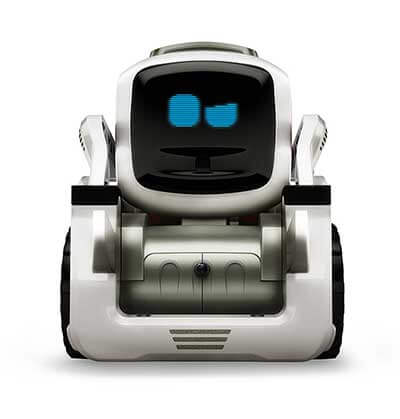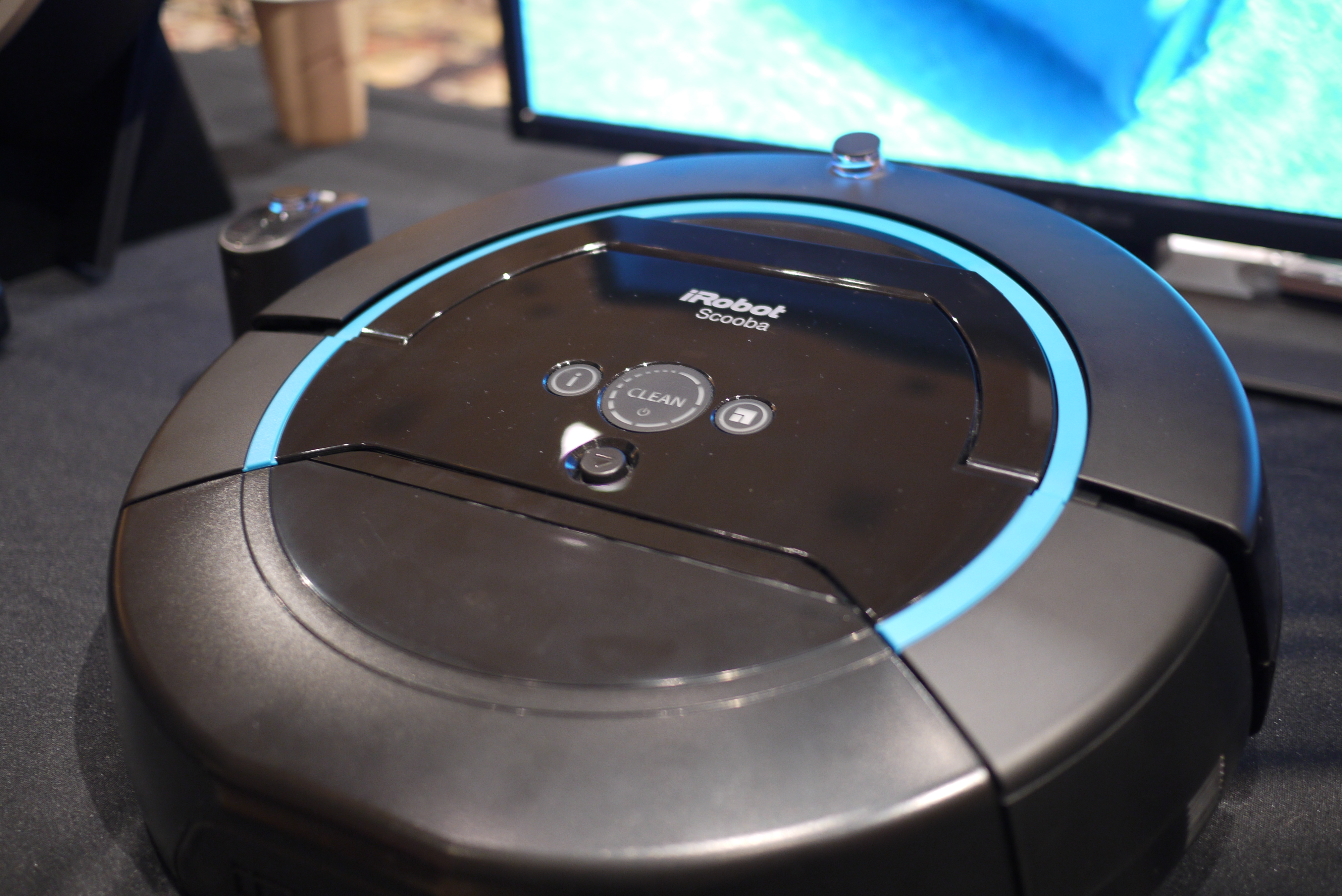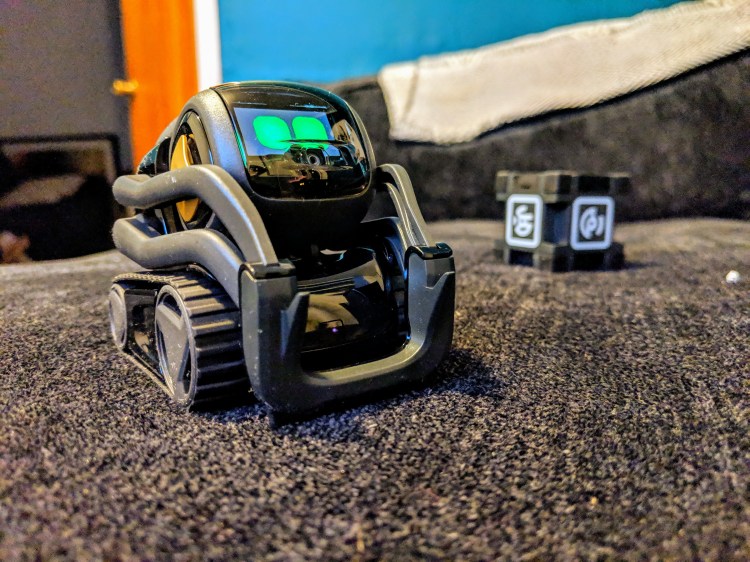About 60 percent of Brits believe there will be a robot in every home within the next 50 years, according to a survey by futurist firm Envisioners and robotics company Anki. Still, some people are convinced that there’s a dystopian future akin to movies like The Terminator.
The survey of United Kingdom residents asked whether people could envision good robots, and the answers that people gave could help Anki make home robots with features that humans could embrace, said Boris Sofman, CEO of Anki, in an interview with VentureBeat.
About 38 percent believe that robots could bring social benefits such as giving them companionship, more time to be with loved ones, or time to pursue their hobbies. But 27 percent fear robots could rise up and take over. The survey quizzed 2,020 U.K. adults and was carried out by Censuswide in August 2018.
The survey isn’t meant to sway the way people feel about robots. Rather, it is meant to give Anki some ideas about how to design robots in a way that won’t spook people, and instead show them the benefits robots can bring, such as companionship or some utility.
June 5th: The AI Audit in NYC
Join us next week in NYC to engage with top executive leaders, delving into strategies for auditing AI models to ensure fairness, optimal performance, and ethical compliance across diverse organizations. Secure your attendance for this exclusive invite-only event.

Above: The Terminator
Dave Coplin, CEO of Envisioners, said in an interview that the companies are both optimists when it comes to the potential of fully autonomous robots.
“What we are trying to do is uncover the potential for good and the potential blockers for domestic robots, who are not just part of the home and are part of the family,” Coplin said. “We wanted to see the fears. Some are obvious where they may take our jobs or supplant human relationships. We wanted to see where the British public stands.”
If people overcame the deluge of bad robot stories in the news media and science fiction entertainment, would they be able to think more expansively about the possibilities for good robots?, Coplin wondered.
“Think of the impact we could make on health if we could convince people, in subtle ways, that they should eat a little less or exercise more,” said Coplin. “This is the potential of home robots.”
But to do that, people have to trust the robots enough to welcome them into the home, and that’s where negative media impressions about robots could stand in the way. The report reaffirms that we are becoming accustomed to more AI and robotics technology in our homes, with more than one in ten (12 percent) believing robots will be integrated into the home in the next ten years.
And 27 percent of people believe that having a home robot could save them around two hours each day. Some 37 percent of adults would outsource the tasks they don’t want to do, such as washing up, watering the plants, cleaning, or folding clothes.
“I want to move away from this narrative of robots taking jobs,” Coplin said. “But 27 percent of people believe the world will go full Terminator. The word came up in comments more times than I care to mention. And when you talk about AI or robots, the first thought some people had was of the Terminator. It’s everybody’s knee-jerk reaction.” To Coplin, that suggests the media is conditioning people to think of robots in a negative way. “This is what we’re fighting against,” he said.

Above: Speed of movement and eye contact are key to giving Anki’s Cozmo lifelike believability. Image Credit: Anki, Inc.
Coplin noted that 21 percent want a robot to run errands such as accepting or delivering parcels, and 25 percent would want a robot to cook for them or provide a home security system. The research also shows that many UK adults hope artificial intelligence will offer them a more emotional connection with robots, providing companionship as well as utility. About 16 percent of Brits said they would want a home robot to keep them company.
More than one in ten (13 percent) want a robot to provide companionship for their pet, child or elderly relative, while 13 percent said they would never feel lonely again as they would always have a companion.
And more than a third (38 percent) of people saw the wider social benefits a robot would bring by giving them more time to improve connections with friends and family members or to pursue their hobbies. 16 percent said a home robot would even give them peace of mind that their home and family was safe.
But, perhaps because of all the dystopian robot sci-fi stories, 36 percent of people fear that robots might be hacked and turned against us. And 31 percent worry that robots would cause them to lose their jobs.
Coplin said that the results were encouraging considering it’s hard to find any movies (like Big Hero 6) that depict kind or protective robots.

Above: Do you think of a Roomba when you envision a smart robot?
Sofman and Coplin said they wanted industry experts to take more action to ensure humans and robots can coexist in a harmonious way. Anki is contemplating how it can do more in the home robot market, but it wants to proceed with the right design that people will embrace, Sofman said.
Some developments, like the growth of smart speakers like Amazon Alexa and robot vacuums, are making people feel more comfortable with robots. But it makes a big difference in terms of what the robot looks like or how it’s designed.
A robot that is designed to look like a human and doesn’t quite pull it off can be creepy, Sofman said. “There’s a stereotype in the back of people’s minds,” he said. “Getting the interface right is critical. If it’s done right, you will forget that you are interfacing with a machine, like a character in a Pixar movie. We are just scratching the surface when it comes to design. It will be interesting to see if we can create a robot that interacts with you the way you interact with a puppy.”


